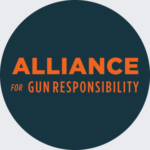Community-Based
- Community Collaborations/Partnerships (49)
- Community School Models (17)
- Community Schools (3)
- Community Service Learning (49)
- Family Engagement (72)
- Family Support Services (30)
The Educational Fund to Stop Gun Violence (Ed Fund) is a 501(c)(3) affiliate organization of the Coalition to Stop Gun Violence. We use a public health and equity lens to identify and implement evidence-based policy solutions and programs to reduce gun violence in all its forms. We seek to make gun violence rare and abnormal. The Ed Fund makes communities safer by translating research into policy. We achieve this by engaging in policy development, advocacy, community and stakeholder engagement, and technical assistance.
In getting the bipartisan Brady Law passed in 1993, Jim and Sarah Brady accomplished the inconceivable. But there’s more work to be done — and only when we work together will we solve this problem. In order to do that work, we must accept these three truths about America’s gun violence epidemic: 1) Gun ownership demands responsibility; 2) Those empowered to do so must uphold existing gun laws; and 3) Gun violence is a uniquely American problem that impacts all races and ethnicities in the country, but nonetheless exacts a particular toll on Black and Brown communities.
Sandy Hook Promise is a national nonprofit organization founded and led by several family members whose loved ones were killed at Sandy Hook Elementary School on December 14, 2012. Based in Newtown, Connecticut, our intent is to honor all victims of gun violence by turning our tragedy into a moment of transformation. By empowering youth to “know the signs” and uniting all people who value the protection of children, we can take meaningful actions in schools, homes, and communities to prevent gun violence and stop the tragic loss of life.
Giffords is a leader in the movement to end gun violence in America. Led by former Congresswoman Gabrielle Giffords, our team brings decades of political, legal, and policy expertise to the fight for gun safety. Our efforts shift culture, mobilize voters, and challenge injustice.
Nearly 40,000 people die from gun violence in the US every year. This uniquely American crisis leaves no community untouched—but it doesn’t have to be this way. From universal background checks to community-based violence intervention strategies, we know that there are proven solutions that will make our country safer. In statehouses and courthouses across America, we’re taking on the gun lobby and winning. Since the tragedy at Sandy Hook in December 2012, we’ve helped pass more than 350 gun safety laws in 45 states.
Gun violence is a complex problem, and ending this epidemic will require a wide range of solutions. We’re committed to seeing this fight through, until the promise of a safe and just country is a reality for every person and community in America.
Afterschool snacks are a compilation of free and low-cost activity guides, books, and resources created to engage youth in STEM by learning from doing, also known as tinkering. These Snacks are a healthy, filling way to satisfy your late-afternoon hunger for science. Try building them with friends! From the California Tinkering Afterschool Network, a project of the Exploratorium.
Can’t make it to the Academy? We offer a wide breadth of resources that can impact your teaching from afar. Whether you are looking for kits of classroom materials, lesson plans, science videos, distance learning programs, or full courses, the Academy has science teaching resources galore.
Looking for ideas to spice up your science teaching? Our activity database features full-period lessons to integrate into your normal curriculum, activities to focus your field trip or ideas for extending the museum visit into the classroom.
Based on years of experience training upper elementary school teachers in the Bay Area, we’ve designed a how-to resource for teachers everywhere to illustrate how you can easily and successfully integrate science notebooks into your own classroom.
Get ready to use science notebooks for scientific reasoning and meaning-making, in a way that supports hands-on scientific inquiry!
The Be SMART campaign was launched to raise awareness that secure gun storage—storing guns locked, unloaded, and separate from ammunition—can save children’s lives. Be SMART emphasizes that it’s an adult responsibility to keep kids from accessing guns and that every adult can play a role in keeping kids and communities safer. There are thousands of Be SMART volunteers in your communities and neighborhoods that are delivering the Be SMART message across the country in all 50 states. Be SMART resources include tips for parents and adults in talking to youth about gun violence and gun violence prevention.
The Alliance for Gun Responsibility works to end the gun violence crisis in our community and to promote a culture of gun ownership that balances rights with responsibilities. Through collaboration with experts, civic leaders, and citizens, we work to find evidence-based solutions to the crisis of gun violence in our community. We create innovative policy, advocate for changes in laws, and promote community education to reduce gun violence.
The Alliance for Gun Responsibility Foundation regularly gathers national and local subject matter experts together to share information and discuss the intersectionality of gun violence with a number of research and advocacy issues, including suicide prevention, domestic violence, hate crimes, trauma-informed care, stigma and discrimination. Each summit focuses on evidence-based best practices, next steps and coordination of prevention efforts.
We are proud to partner with hundreds of organizations across Washington who support commonsense gun violence prevention efforts in our state. The depth and breadth of our coalition membership shows the strong desire for change from voices in all corners of the state.
We also have a robust volunteer program with local leaders across the state. The chapter team model empowers volunteers to drive change in their communities by engaging in a wide range of grassroots activities, including organizing a phone bank, hosting a house party, visiting with a legislator and attending rallies and other events.
The Office of Climate Change and Health Equity addresses the impact of climate change on the health of the American people. Exercising powers of convening, coordination and collaboration, the Office serves as a department-wide hub for climate change and health policy, programming, and analysis, in pursuit of environmental justice and equitable health outcomes. The Office also facilitates the use of regulatory and statutory powers of the Department of Health and Human Services to address matters affecting disadvantaged communities and people on the frontlines of the climate crisis. The Office works alongside community-based organizations, non-governmental organizations, academia, business, industry, along with, state, tribal, local, and territorial governments, to define and implement strategies, conduct strategic outreach and communications, and train and empower community residents.
Trauma Informed Care (TIC) is an organizational structure and treatment framework that involves understanding, recognizing, and responding to the effects of all types of trauma. It emphasizes physical, psychological, and emotional safety for both consumers and providers, and helps survivors rebuild a sense of control and empowerment.
The Attachment & Trauma Network’s mission is to promote the healing of children impacted by trauma through supporting their families, schools, and communities.
Peace Over Violence is a nonprofit 501c3, multicultural, community-based and volunteer centered organization dedicated to building healthy relationships, families, and communities free from sexual, domestic, and interpersonal violence. To achieve this mission our agency manages five departments delivering the services of Emergency, Intervention, Prevention, Education, and Advocacy.










